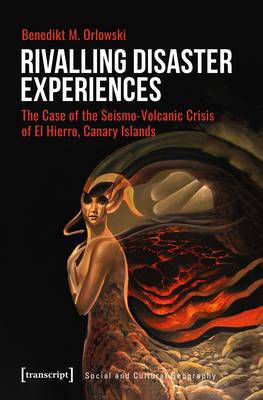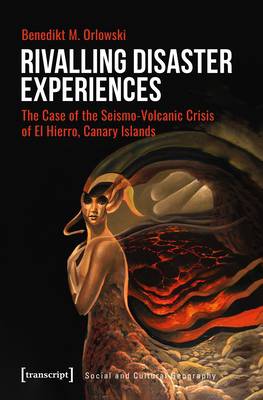
- Afhalen na 1 uur in een winkel met voorraad
- Gratis thuislevering in België vanaf € 30
- Ruim aanbod met 7 miljoen producten
- Afhalen na 1 uur in een winkel met voorraad
- Gratis thuislevering in België vanaf € 30
- Ruim aanbod met 7 miljoen producten
Zoeken
Rivalling Disaster Experiences
The Case of the Seismo-Volcanic Crisis of El Hierro, Canary Islands
Benedikt M Orlowski
€ 127,45
+ 254 punten
Omschrijving
People experience disasters very differently. Conflicts about a "correct" interpretation of the risks might arise. The side-by-side of different truths lead to people seeing mismanagement and disinformation. The volcanic crisis of El Hierro shows how rivalling interpretations amongst affected islanders, the media, sciences, and disaster response institutions cause great social tensions and scepticism towards scientific information. Thus, to fully understand disaster risk, the focus must shift to the rifts between established convictions and the individuals' creativity to overcome them, taking into account their embeddedness in various fields of practice, each with their own rationales and ruptures.
Specificaties
Betrokkenen
- Auteur(s):
- Uitgeverij:
Inhoud
- Aantal bladzijden:
- 310
- Taal:
- Engels
- Reeks:
- Reeksnummer:
- nr. 44
Eigenschappen
- Productcode (EAN):
- 9783837655124
- Verschijningsdatum:
- 30/04/2021
- Uitvoering:
- Paperback
- Formaat:
- Trade paperback (VS)
- Afmetingen:
- 152 mm x 229 mm
- Gewicht:
- 376 g

Alleen bij Standaard Boekhandel
+ 254 punten op je klantenkaart van Standaard Boekhandel
Beoordelingen
We publiceren alleen reviews die voldoen aan de voorwaarden voor reviews. Bekijk onze voorwaarden voor reviews.








